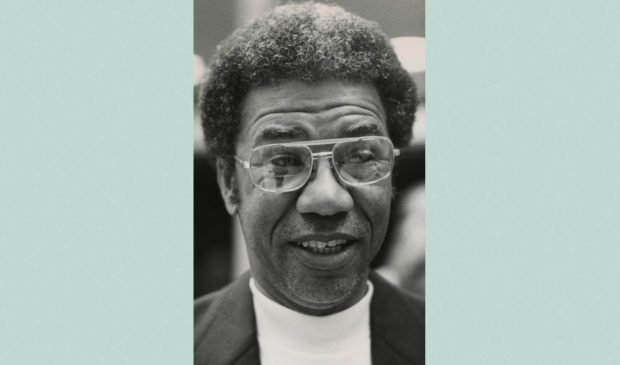Park renamed to honor civil rights legend Volma Overton Sr.
Monday, January 31, 2022 by
Kali Bramble The 65 acres of northern waterfront at Town Lake Metro Park has a new name following a resolution honoring civil rights activist Volma Overton Sr. The park, formerly known as Lamar Beach, will now go by Volma Overton Sr. Shores.
“Growing up in the Black community, Overton was a household name,” City Council Member Natasha Harper-Madison said. “When we talk about the lions of the civil rights movement, he was the king of the pride here in Austin.”
A World War II veteran and alumnus of Huston-Tillotson University, Overton entered the fight for racial justice in the 1950s through the National Alliance of Postal Workers, where he worked to combat discrimination against minority employees. In 1962, he was elected president of the Austin chapter of the NAACP, where he led formative initiatives for the city’s Black community for over two decades.
In addition to establishing the first federal credit union for east Austinites, integrating the city’s First Baptist Church and marching alongside Martin Luther King Jr. at Selma, Overton famously served as a plaintiff in the lawsuit to desegregate Austin’s public school system. After a decade of litigation, the case resolved in a 1979 victory mandating basic investments in East Austin schools and busing programs that put an end to the city’s evasion of federal integration policy.
“I was a junior at Austin High when Overton joined our all-white Baptist church,” recalled Carol Hawkins in Thursday’s public testimony. Hawkins, who joined the NAACP following several racist incidents at Westlake High, credits Overton with winning over a generation of Austinites who may have otherwise remained alienated from the civil rights movement.
“I was afraid because of what the media was saying about him, yet he quietly became everyone’s friend and role model … he showed us a diverse side of Austin richer than anything I could have imagined.”
Through the 1980s, Overton Sr. continued leveraging federal civil rights legislation to initiate local government reforms, pressuring the city to create a Human Relations Commission and to restructure discriminatory electoral practices that systematically excluded minorities from City Council. While some of these reforms failed to materialize in his lifetime (Council did not move to a 10-1 geographic system until 2012), Overton paved the way for activists working to secure more equitable city governance.
In her address to Council, Overton’s granddaughter, Kim Overton, expressed her hopes that the renaming would encourage a deeper understanding of her grandfather’s impact on the city. “It’s so easy for us to forget about the great work he did,” she said. “For those who are new to town, unless they do research into the history of Austin, they may never know about him.” She also noted the significance of the park’s location along the Cesar Chavez corridor, which “perfectly symbolizes the passion he had in bridging the east and west sides of town.”
Those interested in learning more about Overton Sr.’s legacy can check out his 1998 biography, Volma: My Journey, available for browsing at the Austin History Center or for checkout at the Austin Public Library.
The Austin Monitor’s work is made possible by donations from the community. Though our reporting covers donors from time to time, we are careful to keep business and editorial efforts separate while maintaining transparency. A complete list of donors is available here, and our code of ethics is explained here.
You're a community leader
And we’re honored you look to us for serious, in-depth news. You know a strong community needs local and dedicated watchdog reporting. We’re here for you and that won’t change. Now will you take the powerful next step and support our nonprofit news organization?




